BYD Seal vs VW Passat – Differences & prices compared
Compare performance, boot space, consumption and price in one view.
Find out now: which car is the better choice for you – BYD Seal or VW Passat?
The BYD Seal (Sedan) comes with a Electric engine and Automatic transmission. In comparison, the VW Passat (Estate) features a Plugin Hybrid, Diesel, Petrol or Petrol MHEV engine with Automatic transmission.
When it comes to boot capacity, the BYD Seal offers 400 L, while the VW Passat provides 690 L – depending on how much space you need. If you’re looking for more power, decide whether the 530 HP of the BYD Seal or the 272 HP of the VW Passat suits your needs better.
In terms of consumption, the values are 15.40 kWh per 100 km for the BYD Seal, and 0.30 L for the VW Passat.
Price-wise, the BYD Seal starts at 40300 £, while the VW Passat is available from 35700 £. Compare all the details and find out which model fits your lifestyle best!
BYD Seal
The BYD Seal represents a sleek fusion of innovative technology and stylish design, setting it apart in the competitive electric vehicle market. With its aerodynamic silhouette and premium interior finishes, the car offers a driving experience that is both comfortable and exhilarating. Enthusiasts are particularly impressed by the seamless integration of advanced features that prioritise safety and convenience.
details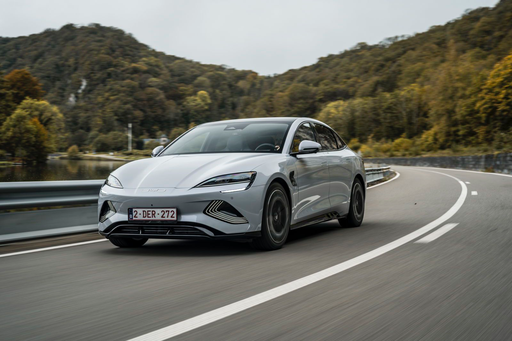 @ press.bydauto.be
@ press.bydauto.be
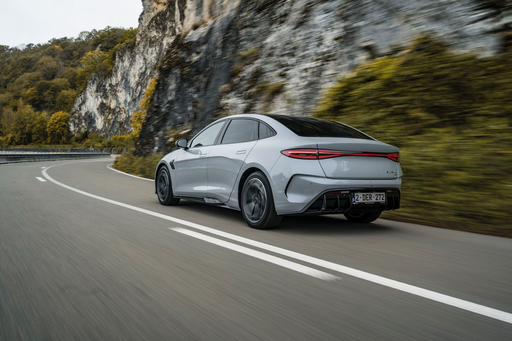 @ press.bydauto.be
@ press.bydauto.be
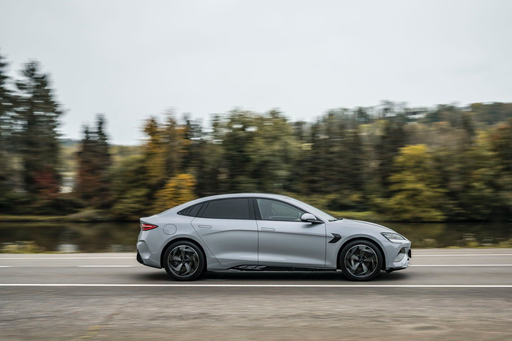 @ press.bydauto.be
@ press.bydauto.be
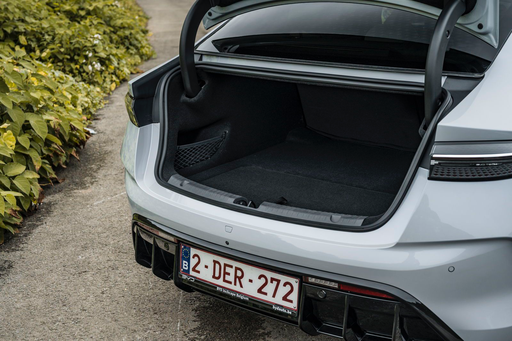 @ press.bydauto.be
@ press.bydauto.be
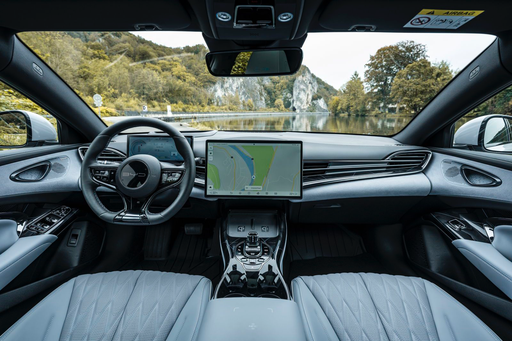 @ press.bydauto.be
@ press.bydauto.be
VW Passat
The VW Passat is a staple in the family saloon segment, known for its refined design and practicality. It effortlessly combines a comfortable ride with a spacious interior, making it a popular choice for long journeys. The cabin features high-quality materials and an intuitive infotainment system, providing a premium feel without sacrificing user-friendliness.
details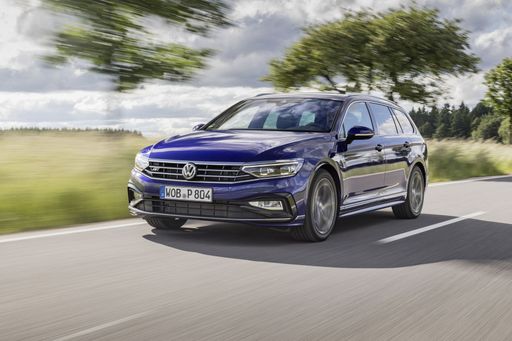 @ volkswagen-newsroom.com
@ volkswagen-newsroom.com
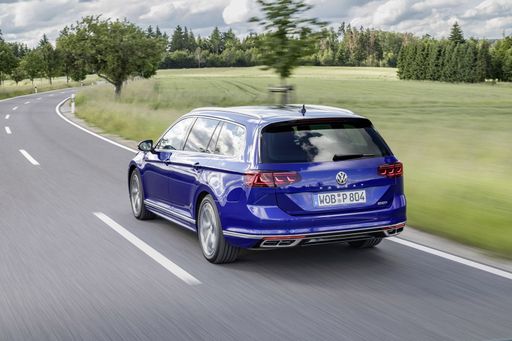 @ volkswagen-newsroom.com
@ volkswagen-newsroom.com
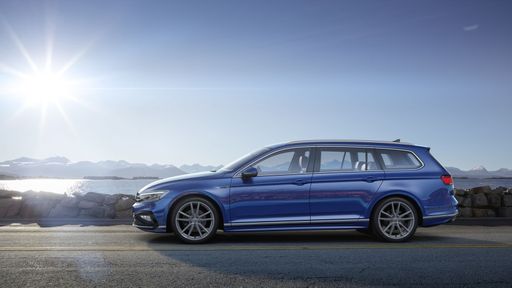 @ volkswagen-newsroom.com
@ volkswagen-newsroom.com
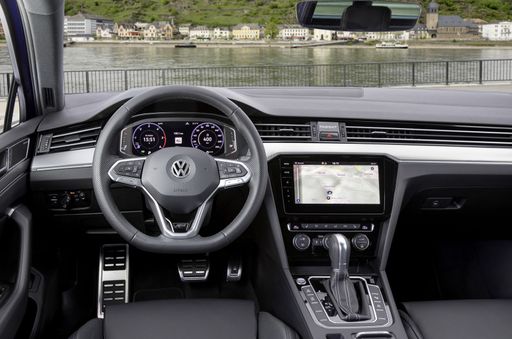 @ volkswagen-newsroom.com
@ volkswagen-newsroom.com

|

|
|
|
|
Costs and Consumption |
|
|---|---|
|
Price
40300 - 43700 £
|
Price
35700 - 57200 £
|
|
Consumption L/100km
-
|
Consumption L/100km
0.3 - 8.1 L
|
|
Consumption kWh/100km
15.4 - 18.2 kWh
|
Consumption kWh/100km
-
|
|
Electric Range
460 - 570 km
|
Electric Range
124 - 133 km
|
|
Battery Capacity
-
|
Battery Capacity
19.70 kWh
|
|
co2
0 g/km
|
co2
7 - 183 g/km
|
|
Fuel tank capacity
-
|
Fuel tank capacity
45 - 66 L
|
Dimensions and Body |
|
|---|---|
|
Body Type
Sedan
|
Body Type
Estate
|
|
Seats
5
|
Seats
5
|
|
Doors
4
|
Doors
5
|
|
Curb weight
1907 - 2185 kg
|
Curb weight
1573 - 1858 kg
|
|
Trunk capacity
400 L
|
Trunk capacity
510 - 690 L
|
|
Length
4800 mm
|
Length
4917 mm
|
|
Width
1875 mm
|
Width
1849 mm
|
|
Height
1460 mm
|
Height
1521 mm
|
|
Payload
446 - 473 kg
|
Payload
501 - 577 kg
|
Engine and Performance |
|
|---|---|
|
Engine Type
Electric
|
Engine Type
Plugin Hybrid, Diesel, Petrol, Petrol MHEV
|
|
Transmission
Automatic
|
Transmission
Automatic
|
|
Transmission Detail
Reduction Gearbox
|
Transmission Detail
Dual-Clutch Automatic
|
|
Drive Type
Rear-Wheel Drive, All-Wheel Drive
|
Drive Type
Front-Wheel Drive, All-Wheel Drive
|
|
Power HP
231 - 530 HP
|
Power HP
122 - 272 HP
|
|
Acceleration 0-100km/h
3.8 - 7.5 s
|
Acceleration 0-100km/h
5.8 - 10.7 s
|
|
Max Speed
180 - 220 km/h
|
Max Speed
212 - 250 km/h
|
|
Torque
360 - 670 Nm
|
Torque
250 - 400 Nm
|
|
Number of Cylinders
-
|
Number of Cylinders
4
|
|
Power kW
170 - 390 kW
|
Power kW
90 - 200 kW
|
|
Engine capacity
-
|
Engine capacity
1498 - 1984 cm3
|
General |
|
|---|---|
|
Model Year
2023 - 2025
|
Model Year
2024 - 2025
|
|
CO2 Efficiency Class
A
|
CO2 Efficiency Class
B, D, G, E
|
|
Brand
BYD
|
Brand
VW
|
BYD Seal
The BYD Seal: An Electrifying Presence on the Road
Amidst the growing popularity of electric vehicles (EVs), the BYD Seal stands out as a compelling choice. With its sleek saloon design and a plethora of cutting-edge features, this model holds its own in the competitive market of eco-conscious automobiles.
Technical Specs that Speak Volumes
The BYD Seal comes in two key variants, each offering a distinct driving experience yet retaining a common emphasis on performance and efficiency. The power output ranges from a robust 313 PS to an exhilarating 530 PS, ensuring that whether you choose the rear-wheel drive or the all-wheel-drive option, you won't be short of thrills.
Performance enthusiasts will also appreciate the remarkable acceleration capabilities; the Seal can go from 0 to 100 km/h in as little as 3.8 seconds. Complementing its acceleration is its astounding maximum torque, reaching up to 670 Nm, making it adept at handling various driving conditions.
Efficiency Meets Innovation
BYD has engineered the Seal to optimise energy consumption without compromising on performance. The car boasts a commendable energy consumption range of 16.6 - 18.2 kWh/100km, reflecting its efficiency-focused design. Coupled with an impressive electric range of up to 570 km, the Seal is poised for longer journeys without frequent recharging interruptions.
Design and Comfort
The BYD Seal's aesthetic appeal is underscored by its sleek saloon body and precise dimensions: 4800 mm in length, 1875 mm in width, and standing at a height of 1460 mm. These dimensions create a dynamic yet spacious presence on the road, ensuring both an aerodynamic performance and a comfortable interior for up to five passengers.
Inside, the Seal is designed with driver and passenger comfort in mind, featuring a well-crafted interior and advanced technology to enhance the driving experience. The boot offers 400 litres of space, catering to practical needs without compromising on style.
Innovative Features for a Modern Drive
The Seal doesn’t just rely on its electric credentials to make an impact. BYD integrates a host of modern technologies and safety features, ensuring that the driving experience is both innovative and secure. The inclusion of a single-speed reduction gear contributes to a smooth driving experience, enabling efficient transitions in speed.
Safety is further assured with the Seal's high CO2 efficiency rating of class A, underlining its efficacy as a sustainable mode of transport that does not contribute to emissions. Given these progressive features, it's clear that the BYD Seal aligns with the evolving expectations of modern drivers looking for an eco-friendly yet high-performing vehicle.
Conclusion: Future-Ready Efficiency
With a competitive price range starting from €44,990, the BYD Seal represents excellent value for those seeking a blend of performance, efficiency, and modern technology. As sustainable transportation becomes a priority globally, the Seal positions itself as a pioneering force in the electric vehicle market, offering a future-ready driving solution that can meet the needs of today's discerning car buyers.
VW Passat
The Evolution of the VW Passat: A Blend of Tradition and Innovation
The VW Passat has long been a staple in the realm of family cars, known for its reliability, spaciousness, and impressive engineering. The latest models uphold this reputation while integrating cutting-edge technology, making them some of the most competitive offerings in the market today.
Engine Options and Performance
The modern VW Passat embraces a wide array of powertrains to cater to different driving preferences. From the nimble 1.5 eTSI ACT petrol-powered mild hybrid with 150 PS to the robust 2.0 TSI petrol variant with 265 PS, there's an engine configuration for every type of driver. For those conscious of fuel efficiency, the plug-in hybrid models offer an impressive consumption rate of just 0.4 L/100 km, with an all-electric range of up to 126 km, providing an eco-friendly solution without compromising performance.
Advanced Transmission and Drive Systems
Every Passat features a sophisticated automatic dual-clutch gearbox, ensuring smooth transitions and optimal fuel efficiency. The drive options include both front-wheel and all-wheel-drive systems, which provide better traction and handling in various driving conditions. The all-wheel-drive system, particularly in the high-performance variants delivering up to 272 PS, ensures superior control and stability even in challenging terrains.
Interior Comfort and Connectivity
The interior of the VW Passat is designed with a focus on luxury and technological convenience. With a wide array of premium materials and ergonomic design, the cabin offers an inviting atmosphere for both driver and passengers. Advanced connectivity features keep you linked to the digital world, with a user-friendly infotainment system that integrates seamlessly with smart devices, ensuring entertainment and convenience on every journey.
Innovative Safety Features
Safety is a key consideration in the design of the VW Passat. The latest models come equipped with an array of state-of-the-art safety features, including adaptive cruise control, lane-keeping assist, and an emergency braking system. These technologies work together to provide a safe and secure driving experience, reflecting Volkswagen's commitment to driver and passenger safety.
Fuel Efficiency and Environmental Impact
The VW Passat stands out in its segment with noteworthy fuel efficiency across the board. With CO2 emissions ranging from just 8 g/km in hybrid models to a maximum of 183 g/km, the Passat offers a broad spectrum of environmentally conscious driving options. This impressive efficiency is complemented by a range of CO2 efficiency classes spanning from B to G, catering to varying environmental preferences.
Conclusion: A Versatile Family Car
In conclusion, the VW Passat remains a remarkable choice for families and individuals seeking a blend of performance, comfort, and advanced technology. Its wide range of options and configurations allow it to meet diverse needs, ensuring that there's a Passat for everyone. With prices ranging from €41,665 to €66,695, the Passat offers premium value in its class, further solidifying its reputation as a definitive all-rounder in the world of estate cars.
Which drive types are available for the BYD Seal?
Available as Rear-Wheel Drive or All-Wheel Drive.
The prices and data displayed are estimates based on German list prices and may vary by country. This information is not legally binding.
